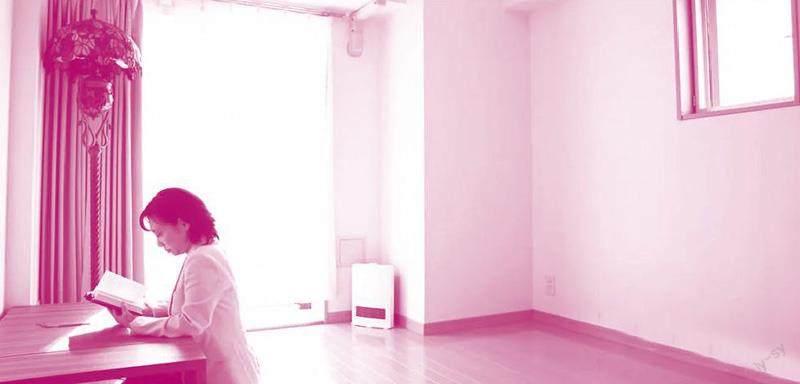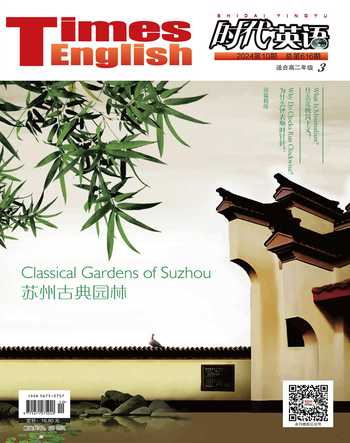What Is Minimalism?


什么是极简主义?
In an age where were bombarded with messages to eat more, do more, spend more, own more, get new things, buy the new phone, car, house, clothes and everything in between, there is a more modest philosophy of living that flies in the face of traditional modern materialism. That philosophy is minimalism, the act of reducing the things we own, rather than expanding them.
这个时代,我们被海量的信息所包围,要我们多吃、多做、多花、多拥有,要我们获得新东西,买新手机、汽车、房子、衣服,等等——在这样的时代,有一种更适度的生活哲学与传统的现代物质主义背道而驰。这种哲学就是极简主义,它倡导减少而非增加我们所拥有的物品。
What is a minimalist?
什么是极简主义者?
If minimalism is the reduction in the things we own, then a minimalist is simply someone that makes an effort to reduce what they have, and they do this for a number of different reasons.
The minimalist is one who makes a deliberate effort to reduce ones scope of life to include only what is most essential. All fat and excess is cut away from life, the frills consciously severed, leaving only that which is necessary for living well.
The limits a minimalist places on themselves will be defined by what they personally consider essential. Some might need to care for children or elderly parents, meaning that their essentials will be different to someone else. Another may decide that books or music is irreplaceable as a source of happiness, meaning that their boundaries of minimalism will include these things while others may not.
However, they all have one thing in common—the minimalist has a clearly defined line at which their minimalism ends and excess begins.
如果说极简主义是减少拥有的东西,那么极简主义者就是努力减少自己所拥有之物的人,他们这么做的原因各种各样。
极简主义者会刻意缩小自己的生活范围,只留下最重要的。剔除生活中所有多余的事物,有意识地断绝不必要的花费,只留下好好生活所必需的东西。
极简主义者的自我限制将取决于他们个人看来最重要的事。有些人可能需要照顾孩子或年迈的父母,这意味着他们心中最重要的将与其他人不同。有些人可能认为书籍或音乐是不可替代的快乐源泉,这说明这些东西对他们来说必不可少,而对其他人则可能不是。
然而,极简主义者都有一个共同点——他们有一条明确的界线,一旦越过就不再是极简,而是过度了。
Benefits of minimalism
极简主义的好处
Minimalism is growing as a way of life and theres a lot that we can benefit from when we narrow the scope of what we own.
极简主义日渐成为一种生活方式,而且当我们缩小自己所拥有之物的规模时,可能会受益良多。
Spend less
减少开支
Minimalism limits the risk of lifestyle creep. If we keep our lifestyle stable and our expenses stay the same, then any additional income we get will become an asset. The more we reduce the complexity of our life, the less were at risk of lifestyle creep and the more we can save for what really matters to us.
極简主义降低了生活方式蠕变的风险。如果我们保持生活方式稳定并且开支不变,那么任何额外的收入都将成为一种资产。我们越是降低生活的复杂性,生活方式蠕变的风险就越低,也就能省下越多的钱用于真正重要的事。
Less stress
减轻压力
A clean house and environment is a less stressful environment. Theres less to think about, less to clean, less to maintain, less to move and less to worry about breaking or replacing. In minimizing the things around us we limit the impact those things can have on our peace of mind.
整洁的房子和环境带给人的压力较小。考虑更少、打扫更少、维护更少、挪动更少,对损坏或更换的担心也更少。通过尽量减少周围的事物,可以限制那些事物对我们内心平静的影响。
More freedom
更多自由
Our sense of freedom is often influenced by what we feel attached to and what we feel tied to. Fewer belongings will naturally reduce the influence that our things have over our feelings of attachment and this, in turn, will help us feel more free and independent of our belongings.
我们的自由感时常受到所依赖和被牵绊的事物的打搅。拥有的东西少了,我们对事物依赖所带来的影响自然就减轻了,而这又会帮助我们提升自由感、减少对事物的依赖。
Word Bank
fly in the face of 悍然不顾;公然违抗
Such a suggestion is flying in the face of common sense.
scope /sk??p/ n. 范圍
Our powers are limited in scope.
excess /?k'ses/ n. 超过;过度
You can throw away any excess.
asset /'?set/ n. 资产;财产

